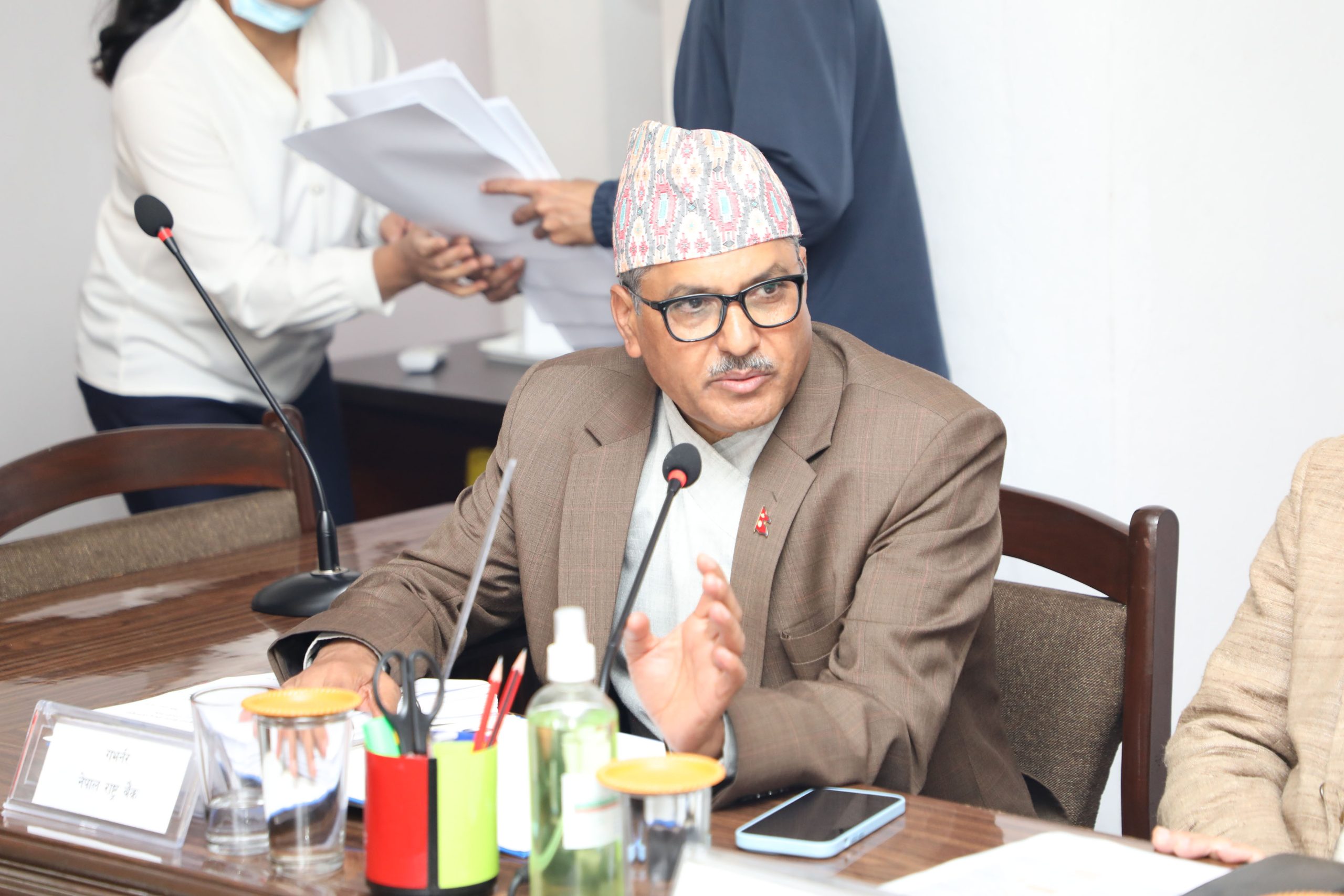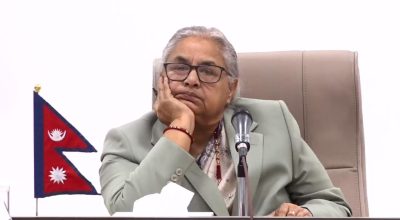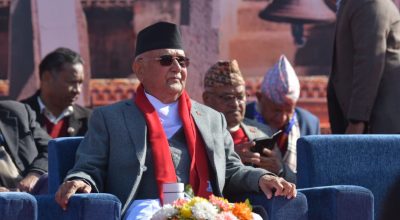
Kathmandu, July 23: The Nepal Rastra Bank (NRB), central bank of Nepal, has unveiled the much expected monitory policy for the fiscal year 2023/24 today.
The policy has tried to maintain balance between monitory policy and fiscal policy of the government.
The policy has vowed to take into strict consideration on un-professional activities and bring forward the stricter money laundering directives.
However, the monitory policy will ease for bank loans limitation for first housing up to Rs. 2 crores. Previously, the limitation was of Rs. 1.5 crores.
Likewise, the banks may provide 1% more interest for remittance inflows through banking channels.
NRB has stated that a flexible monetary policy has been adopted to keep the economy running while maintaining price and external stability.
The priority of the monetary policy is to increase the internal production capacity by channeling the financial resources to the productive sector, NRB says.
Regulatory policies have been formulated to support the monetary policy in order to make the monitoring, regulation and supervision of large loans effective, to reduce the over-centralization of loans, to give priority to small and medium productive loans and to promote financial stability by increasing the quality and accessibility of loans.
The fixed exchange rate of Nepali Rupee with Indian Rupee has been kept unchanged. The weighted average interest rate of interbank transactions of banks and financial institutions has been kept unchanged.
The policy rate will be determined based on the ability of the foreign exchange reserves to support imports and the annual target inflation. Based on the status of operational targets, the interbank interest rate will be kept within the interest rate corridor by conducting open market transactions.
The goal of monetary policy is to maintain foreign exchange reserves to cover at least 7 months of goods and services imports. In order to keep the inflation within 6.5 percent, monetary management will be done in such a way that the monetary expansion does not put pressure on the prices.
As targeted by the budget statement of the government of Nepal for the fiscal year 2080-81, the priority is to channel the financial resources towards the productive sector in order to help achieve an economic growth of 6 percent. In the financial year 2080-81, it is projected that the total money supply will increase by 12.5 percent and the credit from banks and financial institutions to the private sector will increase by 11.5 percent.
Considering the internal and external economic scenario, the policy rate has been reduced by 50 basis points to 6.5 percent. Keeping the bank rate unchanged at 7.5 percent, the deposit collection rate has been reduced from 5.5 percent to 4.5 percent. If the weighted average interbank interest rate taken by this bank as an operational target is higher than the bank rate and lower than the deposit collection rate, the secondary market transaction and deposit collection will be opened.
The system of permanent liquidity facility at bank rate and overnight liquidity facility at policy rate has been kept intact. In order to make the interest rate corridor effective, arrangements will be made to provide permanent deposit collection facility at the lower limit of the interest rate corridor. Mandatory cash ratio and statutory liquidity ratio have been kept unchanged.
KYC to be linked with National ID
In order to facilitate the exchange of customer information between banks and financial institutions and other organizations licensed to perform payment-related activities, and the National Identity Card issued by the Government of Nepal will be connected to the Centralized KYC System, the necessary coordination will be done with the related agencies to build and implement the Centralized KYC System.
Share mortgage/real estate
The provisions related to the existing risk burden of share mortgage loans, real estate loans and hire purchase loans will be reviewed.
Microfinance
The recommendations of the study report prepared by the study committee regarding the problems and suggestions of microfinance financial institutions will be implemented gradually. Mergers and acquisitions of microfinance will be encouraged so that existing facilities will be available if integrated business operations are conducted by the end of Ashad, 2081 BS.
Nepalese can get US$ 2500
Nepali citizens visiting countries other than India will be provided up to US$ 2,500 twice in a year as a passport facility. Previously such facility was of US$ 1500.












